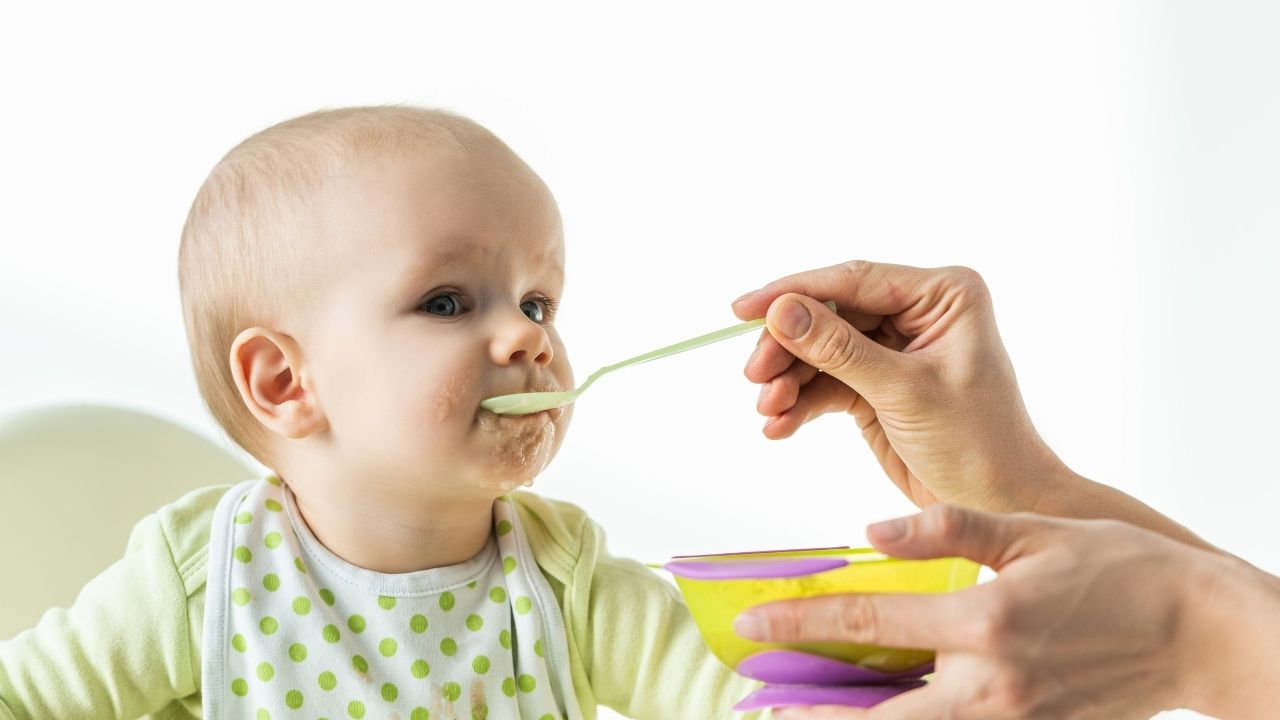Congratulations on embarking on the journey towards parenthood! As a parent-to-be, you're likely experiencing a mix of excitement and apprehension. It's completely normal to have questions about pregnancy, childbirth, and newborn care. Fortunately, you don't have to navigate this new terrain alone. Our comprehensive resources are here to guide you every step of the way.
From pregnancy tips and advice to postpartum care, we've got you covered with all the information you need for a healthy start for your little one. We understand that being a new parent can be overwhelming at times, which is why we strive to provide informative and engaging content that will help alleviate any concerns or worries you may have. So sit back, relax, and explore our resources as we take this journey together towards baby health.
Pregnancy Tips and Advice
Looking for tips and advice during your pregnancy? You're in the right place! We've got all the info you need to make this journey a little easier. First, preparing emotionally is just as important as getting physically ready. Pregnancy can be an emotional rollercoaster, and it's essential to take care of your mental health as well. Some ways to prepare emotionally include talking with your partner or loved ones about your feelings, practicing relaxation techniques like meditation or yoga, and seeking support from a therapist or counselor if needed.
Another crucial aspect of pregnancy is managing weight gain. It's natural for expectant mothers to put on weight during their pregnancy, but excessive weight gain can lead to complications such as high blood pressure and gestational diabetes. To manage weight gain effectively, focus on eating a healthy diet filled with fruits, vegetables, lean proteins, and whole grains while avoiding processed foods high in sugar and fat. Additionally, regular exercise can help you maintain a healthy weight while also reducing stress levels.

Now that you know how to prepare emotionally and manage your weight gain during pregnancy let's move onto childbirth education where we'll cover everything you need to know about delivering your baby safely.
Childbirth Education
When it comes to Labor and Delivery, you may have heard many different stories from friends or family members. However, taking a childbirth education class can provide you with the most accurate and up-to-date information on what to expect during labor and delivery. Pain Management Options are also an important topic to discuss, as there are many options available to help manage the pain of childbirth, such as breathing techniques, epidurals, and more. Lastly, it's important to understand Cesarean Section procedures in case it becomes necessary for your delivery, including how it's performed and what recovery looks like afterwards.
Labor and Delivery
Get ready for the big day with our Labor and Delivery section, where you can find everything you need to know about bringing your little one into the world. We understand that this can be an overwhelming experience, especially for first-time parents. That's why we've compiled a comprehensive list of tips and advice to help make the process smoother.
In this section, you'll learn about the different stages of labor, what to expect during delivery, and how to prepare yourself mentally and physically for childbirth. We also cover important topics such as breastfeeding benefits and maternity leave policies so that you can make informed decisions about your postpartum journey. With our expert guidance, you can feel confident and prepared as you embark on this new chapter in your life. Next up is our Pain Management Options section where we'll discuss various ways to manage labor pain without medication.

Pain Management Options
You might be feeling anxious about managing labor pain, but don't worry - there are plenty of options available to help you through it. Natural remedies like breathing techniques, massage, and warm baths can help ease the discomfort. Medical interventions such as epidural anesthesia, nitrous oxide gas, and IV medications are also available for those who need stronger pain relief.
It's important to discuss your pain management preferences with your healthcare provider ahead of time so they can make a plan that works best for you. Keep in mind that every labor and delivery experience is unique, so what works for one person may not work for another. In the end, the goal is to have a safe and healthy delivery for both you and your baby. Now let's move on to the next section about cesarean sections.
Cesarean Section
If a vaginal birth is not possible or safe for you and your baby, a cesarean section, commonly known as a c-section, may be necessary. Recovery tips after a c-section include taking pain medication as prescribed, getting plenty of rest, and avoiding heavy lifting and strenuous physical activity for several weeks. It's important to also keep the incision clean and dry to prevent infection.
VBAC considerations should also be discussed with your healthcare provider if you plan on having more children in the future. A VBAC (vaginal birth after cesarean) can be possible for some women who have had a previous c-section, but it depends on individual circumstances such as the type of uterine incision made during the previous surgery. Your healthcare provider will discuss the risks and benefits of VBAC versus repeat c-section with you to help you make an informed decision about your options.

Moving onto newborn care and development, it's important to remember that every baby is unique and develops at their own pace. However, there are general milestones that most babies reach within certain age ranges. These milestones include things like smiling, rolling over, crawling, walking, talking, etc. As a parent or caregiver, it's helpful to know what to expect so you can provide appropriate support and stimulation for your little one's growth and development.
Newborn Care and Development
Take a closer look at the fascinating world of newborns and their development to gain valuable insights into your little one's growth. As a new parent, it can be overwhelming to navigate the different stages of your baby's development. However, understanding the milestones and changes that occur during the first few weeks and months can help you provide the best care possible for your child.
One important aspect of newborn care is breastfeeding techniques. Breast milk provides essential nutrients for your baby's growth and development, as well as boosting their immune system. It can also create a special bond between mother and baby. Learning proper latching techniques and positions for feeding can make this experience more comfortable for both you and your baby. Additionally, sleep training methods are crucial for establishing healthy sleep patterns in infants, which leads to better rest for both baby and parents alike! By following these tips, you can ensure that your newborn is receiving the best possible care.
As you prepare to bring your newborn home from the hospital, it’s important not to forget about postpartum care. Your body has undergone significant changes during pregnancy, labor, and delivery; therefore taking care of yourself is just as essential as caring for your little one. Keep reading our comprehensive resources to learn more about how to take care of yourself after giving birth!

Postpartum Care
Don't neglect your own recovery after childbirth - taking care of yourself is just as important as caring for your newborn! Postpartum exercise can help you feel more energized and improve your overall well-being. But remember to start slow and listen to your body. Walking, gentle yoga, or pelvic floor exercises are great options to get started.
Breastfeeding support is also crucial during the postpartum period. Seek out a lactation consultant or breastfeeding group if you have any concerns or difficulties with nursing. Additionally, prioritize rest and self-care by accepting help from loved ones, eating nourishing foods, and staying hydrated. Remember that a healthy and happy mom means a healthier and happier baby. Moving on to common challenges and concerns...
Common Challenges and Concerns
Dealing with common postpartum challenges and concerns can be overwhelming, but it's important to remember that you're not alone and there are plenty of resources available to help. It's common for new mothers to face breastfeeding challenges such as difficulty latching, low milk supply, or painful nursing. However, with the right support and guidance from lactation consultants or breastfeeding support groups, many of these challenges can be overcome.
Another challenge many new parents face is deciding on their parenting style. With so many different approaches out there, it can be tough to know which one is best for your family. Remember that every family is unique and what works for one may not work for another. Take the time to research different parenting styles and talk with trusted friends or family members who have experience raising children. And don't forget about seeking professional advice from pediatricians or child development experts if needed.

Resources and Support
Looking for a community to connect with during your pregnancy journey? Online communities and forums are a great place to start. If you prefer in-person support, consider joining local support groups or attending classes specific to pregnancy and parenting. Additionally, professional services such as doulas or lactation consultants can provide valuable guidance and referrals for other resources in your area.
Online Communities and Forums
Joining online communities and forums is a great way to connect with other parents who are going through similar experiences as you. These virtual groups offer a space for discussions on various parenting topics, from pregnancy to the early stages of child development. You can ask questions, share your own stories, and receive support from other members.
One of the great benefits of online communities is that they provide partner support as well. Dads are also encouraged to join in these discussions and share their thoughts and opinions. This helps create a better understanding between partners about the challenges of raising a child together. Additionally, many online communities have specialized groups for breastfeeding challenges where moms can discuss struggles they may be facing or seek advice from others who have overcome similar issues.
As helpful as online resources can be, it's always important to connect with others in person too. That's why local support groups and classes will be just as crucial in your journey towards baby health.

Local Support Groups and Classes
If you want to connect with other parents and get support in person, don't miss out on the benefits of local support groups and classes. These gatherings offer a welcoming environment where you can meet other moms and dads who are going through similar experiences. You'll have the opportunity to share tips, ask questions, and receive advice from people who understand what it's like to raise a little one.
Breastfeeding support is one popular type of group that many new moms find helpful. Whether you're struggling with latch issues or just need encouragement, these groups provide a safe space for nursing mothers to connect and learn from one another. Additionally, parenting workshops cover topics such as sleep training, babywearing, and infant nutrition. Attending these classes can help boost your confidence as a parent while also giving you practical tools for raising a happy, healthy child. If you're not sure where to start looking for local resources, try checking with your hospital or pediatrician's office – they may be able to provide recommendations or even host their own support groups! And if you're interested in more professional services and referrals? Just keep reading – we've got you covered!
Professional Services and Referrals
You can take advantage of professional services and referrals to get the support you need as a parent. Referral networks are available to help connect you with the right resources, such as lactation consultants, pediatricians, nutritionists, and therapists. These professionals can provide expert consultations for anything from breastfeeding challenges to mental health concerns.
To access these services, start by talking with your healthcare provider or local community center. They may be able to refer you to someone who specializes in the area where you need help. Additionally, many hospitals have programs that offer postpartum support groups or one-on-one counseling sessions with a licensed therapist. Don't hesitate to reach out for help - taking care of yourself is just as important as taking care of your baby.

Remember that parenting is a journey full of ups and downs. While it's normal to experience some challenges along the way, there's no shame in asking for help when you need it. By utilizing professional services and referrals, you'll have access to experts who can provide guidance and support as you navigate this exciting new phase of life.
Frequently Asked Questions
What are the potential risks of getting pregnant after age 35?
Getting pregnant after the age of 35 can potentially lead to certain risks for both the mother and the baby. As a woman ages, her fertility starts to decline and she may have difficulties getting pregnant naturally. Fertility treatments such as IVF can help but they also come with their own set of potential risks. It's important to consider genetic counseling as well, as there is an increased risk of chromosomal abnormalities in babies born to older mothers. However, with proper prenatal care and management, many women over 35 go on to have healthy pregnancies and babies. If you're considering starting a family later in life, it's important to talk to your doctor about your options and potential risks.
How can I cope with the emotional challenges of infertility?
Coping with infertility can be emotionally challenging, but there are strategies that can help. One way to cope is by seeking support from others who understand what you're going through. Support groups offer a safe space to share your experiences and emotions with people who are in a similar situation. It's also important to take care of yourself during this time, whether it's by practicing self-care activities like meditation or exercise, or seeking professional counseling. Remember that infertility doesn't define you as a person, and there are many options available for starting or growing your family when the time is right.
Are there any natural remedies for morning sickness during pregnancy?
Are you experiencing morning sickness during your pregnancy and looking for natural remedies? Herbal remedies such as ginger, peppermint, and lemon can help alleviate nausea and vomiting. You can also try acupuncture treatments to relieve symptoms. Acupuncture involves the use of small needles that are inserted into specific points on your body to stimulate energy flow and balance hormones. These remedies have been known to be effective in reducing morning sickness symptoms without causing harm to you or your baby. It's always best to consult with a healthcare professional before trying any new treatments during pregnancy.

How can I prepare my older child for the arrival of a new sibling?
Preparing your older child for the arrival of a new sibling can be an exciting yet challenging task. Sibling bonding is crucial in creating lasting relationships between siblings, but it can also lead to sibling rivalry if not handled properly. To ease your older child's transition, involve them in the preparation process such as decorating the nursery or choosing outfits for their little brother or sister. Encourage them to express their feelings and validate their emotions while teaching them how to be gentle and patient with the baby. As they adjust to their new role as big brother or sister, continue nurturing their bond by setting aside quality time for just the two of you and praising positive interactions between siblings. With patience, understanding, and guidance, you can help foster a strong sibling relationship that will last a lifetime.
What are my options for postpartum birth control?
Oh, you just welcomed a new bundle of joy into the world! Congratulations! Now, let's talk about postpartum birth control options. Long-term hormonal methods like the implant or IUD can be highly effective in preventing pregnancy. The implant is a small rod inserted under the skin of your upper arm that releases hormones to prevent ovulation for up to three years. An IUD is a small device placed inside your uterus that can last anywhere from three to ten years depending on the type. These methods are great if you're not planning on having another baby anytime soon and want long-lasting protection without worrying about taking a pill every day. It's always best to consult with your healthcare provider to discuss which option would work best for you and your unique situation.
Conclusion
Congratulations on embarking on the journey of parenthood! It can be both exciting and overwhelming at times, but rest assured that you have a comprehensive resource at your fingertips to guide you through every step of the way. From pregnancy tips and advice, to childbirth education and newborn care, we've got you covered.
As you navigate through the different stages of your baby's development, there may be common challenges and concerns that arise. But don't worry, our resources offer informative and knowledgeable insights to help ease any worries or stress. And for those moments when additional support is needed, we provide helpful links to connect with other parents who are going through similar experiences.

While parenthood can be an adventure full of twists and turns, with our resources by your side, you'll be well-equipped to handle anything that comes your way. So take a deep breath, relax, and enjoy this special time in your life - because after all, it's euphemistically said that parenting is not for the faint-hearted!
.png)





